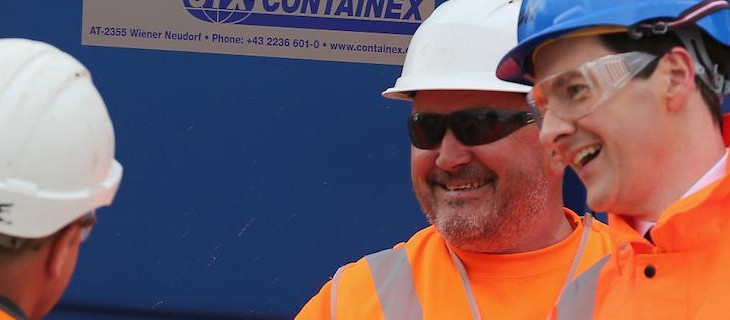Nine times more spent pursuing claimants than employers not paying minimum wage

[responsivevoice_button]
From today — 1 April 2016 — workers in the UK aged over 25 earning the minimum rate of £6.70 per hour will get a 50p increase. The government boasts that this proves it is on the side of workers: “Britain deserves a pay rise,” the chancellor George Osborne has claimed. “And this one-nation government is making sure it gets one, helping more people have the security of a higher wage to provide for themselves and their families.”
No doubt many will be paid more but let’s not get ahead of ourselves.
The new £7.20 rate is still well below the real living wage — based on the cost of living — of £8.25 an hour. It’s only for over-25s, with younger people stuck on the old rate. Shareholders, CEOs and senior management of the corporations that dominate the economy will continue to accrue bumper payouts. Companies including Tesco, Wilko and B+Q have already cut other benefits to mitigate the impact of the new rate, while others are planning lay-offs.
For the hundreds of thousands of workers currently paid below the minimum wage, its increase will mean little. Recent governments have shown little inclination to crack down on employers who are illegally underpaying their staff. The present one, for all its rhetoric, doesn’t seem set to change.
Last year, the government, through HM Revenue & Customs, spent £9m on enforcing payment of the minimum wage, according to a Freedom of Information request by Corporate Watch. To give this number some context, we also asked the Department for Work and Pensions how much they spent on investigating benefit fraud in the same year.
The answer was over nine times as much: £83m. The disparity was similar throughout the Coalition years, and under the last Labour government. Last September, business minister Sajid Javid promised to increase HMRC’s budget for this but the difference will remain stark. According to the Low Pay Commission spending on minimum wage enforcement increased to just £13.2m in 2015/16.
There has been no comprehensive survey on how many people are paid less than the minimum wage but the estimates that have been made show underpayment is widespread. Figures from the Office for National Statistics estimate 188,500 of workers over the age of 21 — almost 1% — were underpaid in 2015. Figures collected for specific sectors suggest this is on the low side.
The National Audit Office has said as many as 220,000 people working in social care may be getting less than minimum wage, for example. The Low Pay Commission also notes migrant workers hold a sixth of the UK’s two million “low-skilled” workers and are often paid in cash, and so unlikely to be included in the ONS statistics.
And yet, last year HMRC’s investigations identified just 26,318 workers being paid less than the minimum, with 735 firms identified as having underpaid £3.3m. Whatever the exact amount of people not being paid minimum wage, this seems like a drop in the ocean.
In marked contrast to the attitude taken to benefit claimants, the punishments meted out to employers has been lenient. HMRC has criminally prosecuted just two employers in the last five years, with minor fines against the companies the result.
Javid said the government is setting up a new team in HMRC to take up criminal prosecutions but, again, it looks unlikely to pursue dodgy employers with the same vigour it goes after claimants. In the past five years 57,453 people were prosecuted for benefit fraud, with almost 8,000 being sent to prison or given suspended sentences, according to another FOI disclosure. HMRC did issue 3,905 civil penalties. But that’s not much over five years. The DWP took action against 136,465 people for benefit fraud in 2015 alone.
Even the employers they do take action against do not suffer significantly. The government has made much of its new “naming and shaming” regime and has pledged to double the financial penalties meted out to employers.
So far mainly smaller companies have been targeted and the emphasis has been more on self-regulation than punishment. If an individual employee complains about a company and is found to be underpaid, HMRC does not automatically investigate the rest of the company’s workforce, instead relying on the company to do its own checks to see if it owes money to other workers.
Minister Nick Boles told parliament that HMRC will investigate further only if the employer does not submit a “self-correction” report. The minister would not say how prevalent this way of dealing with the problem is but it appears to be a common way for HMRC to operate: of 13 social care companies that have been named as underpaying workers, eight were identified as owing money to just one carer.
For all the talk of higher penalties, the National Minimum Wage campaign launched last summer included the condition that no action would be taken against employers who came forward to say they had been underpaying workers, and that HMRC would not investigate them further.
But the government’s approach to enforcing regulations that should protect workers undermines the fanfare around the new £7.20 rate and seems especially half-hearted when compared with the zeal shown in pursuing the unemployed. If you’re underpaid, the state probably isn’t going to help you. But if you’re on benefits, it may well get you.
This article was originally published on OpenDemocracy
